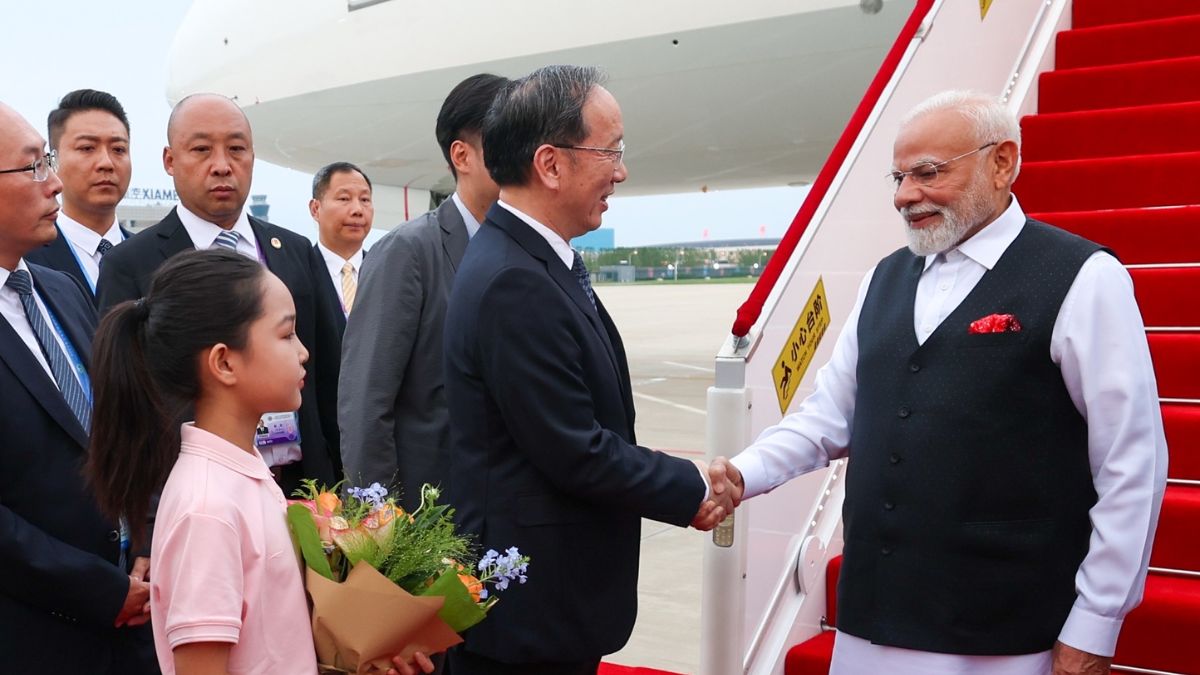Prime Minister Narendra Modi’s arrival in Tianjin, China, on August 31, 2025, for the SCO Summit has triggered a storm online. This marks his first trip to China since the Galwan Valley clash of June 15, 2020—an incident that claimed the lives of 20 Indian soldiers and remains one of the darkest chapters in India–China ties. Many netizens have expressed anger and disappointment, questioning the optics of Modi visiting Beijing without any visible accountability or resolution of the border crisis.
20 Indian brave-hearts were martyred in the Galwan Valley on June 15, 2020.
PM Modi has forgotten them – but an indebted nation remembers our heroes.
1. Colonel B Santosh Babu
2. Naib Subedar Nuduram Soren
3. Naib Subedar Mandeep Singh
4. Naib Subedar Satnam Singh
5. Havaldar… pic.twitter.com/haKzC54otw— Supriya Shrinate (@SupriyaShrinate) August 31, 2025
20 Soldiers were martyred by China in Galwan.
Today their supreme sacrifice is betrayed 💔
Most heartbreaking image of the day. pic.twitter.com/HKm8CLFfCe
— Roshan Rai (@RoshanKrRaii) August 31, 2025
Look how shamelessly he is smiling over the death of 20 brave soldiers martyred in Galwan💔💔
#ModiInChina pic.twitter.com/kFvIp82YCe
— Amock (@Politicx2029) August 31, 2025
You are seeing the red carpet. I am seeing the blood of our soldiers who died in Galwan.
We are not the same bro. pic.twitter.com/Q9rHNMwCzH
— Aditya Ojha (@thispodcastguy) August 30, 2025
The Galwan Valley clash: What happened on June 15, 2020?
The Galwan Valley clash was the first deadly confrontation between Indian and Chinese troops in 45 years. Soldiers from both sides fought hand-to-hand at 14,000 feet in freezing night temperatures, using stones, nail-studded rods, and barbed wire-wrapped clubs.
India confirmed 20 soldiers were killed, including Colonel B. Santosh Babu, while China admitted to only four deaths, though reports suggest the actual toll was higher. Many fatalities occurred due to severe injuries and soldiers falling into the icy Galwan River. The clash happened during a de-escalation process, exposing a breach of trust and violation of border agreements by the PLA.
Why was Galwan a turning point?
The clash was significant for multiple reasons:
-
It was the first combat fatality on the LAC since 1975.
-
It shattered decades of border-management agreements, where firearms were avoided.
-
Colonel Santosh Babu’s death symbolized the sacrifice of the Indian Army in defending sovereignty.
-
It hardened India’s stance against China, with bans on over 200 Chinese apps, tighter investment rules, and massive troop deployments along the LAC.
Colonel Santosh Babu and the soldiers’ sacrifice
The Galwan martyrs belonged mostly to the 16 Bihar Regiment. Colonel Santosh Babu stood out as he personally confronted Chinese troops about their withdrawal violations. His bravery in leading from the front earned him the Maha Vir Chakra posthumously. The names of the fallen—such as Naib Subedar Nanduram Soren, Havildar K. Palani, and Sepoy Aman Kumar—remain etched in public memory as symbols of sacrifice.
India and China’s narratives differed
-
India’s stance: China launched a pre-meditated attack, violating border agreements.
-
China’s stance: Downplayed aggression, called it a “misunderstanding,” and admitted only four deaths.
-
Global media—from NYT to BBC—called the incident a turning point for Asia’s geopolitics.
Fallout on trade and diplomacy
While trade between the two nations stayed strong, diplomatic ties nosedived. Public anger in India grew, with boycotts of Chinese goods and cultural exchanges being suspended. Trust eroded, and China’s infrastructure buildup near the border made reconciliation harder.
Why are people angry at Modi’s China visit now?
Netizens feel the visit comes without accountability for Galwan. Many argue that stepping onto Chinese soil without addressing troop withdrawal or seeking justice for the martyrs is a betrayal of national sentiment. Social media posts question whether India has moved on too quickly from an incident that left deep scars.
For many Indians, Modi’s trip isn’t just about the SCO—it’s about whether the government is willing to reset ties with Beijing without closure on Galwan. The online anger reflects a raw wound that has yet to heal, five years after the night that changed India–China relations forever.


